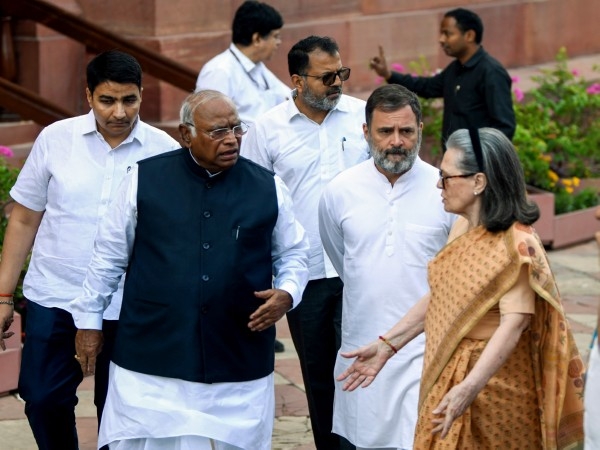Want to get rich quick? Snitch on your next-door tax evader

- I-T department will reward anyone informing on tax evaders
- Inputs must be \'backed by facts, documents\'; speculation won\'t do
- The reward: 10 percent of the dues collected, going up to Rs 15 lakh
- Sociologists say it\'ll promote a snitch culture, damage political culture
- It will damage trust in person-to-person business dealings
- Sifting through all the information for credible evidence won\'t be easy
Ever dreamed of stumbling upon a treasure chest and living off it happily ever after?
Well, the Income Tax department has just brought the dream within reach. All you have to do is snoop a little on your Merc-driving, Bahamas-vacationing neighbour.
New guidelines released by the department to its offices provide for rewards to informers who unmask "untraceable assessees" that owe big sums in taxes.
The reward: a tenth of the dues collected from the defaulter, going up to a maximum of Rs 15 lakh. And it will all be perfectly legal income (but taxable, of course)!
So, would you snitch?
Due for assessmentWe live in a country where cash-only boards are a common sight and where asking for a purchase receipt is often met with raised eyebrows, a clearing of throat and then the demand for "extra charge" - as if you have asked for an unwarranted favour.
And paying taxes is seen as tantamount to flushing the "hard-earned" money down the gutter. "Why pay when the government does nothing for us?" is a common refrain.
The sentiment shows up in the numbers. According to a 2012 estimate by former finance minister P Chidambaram, less than 3 percent Indians pay income tax, making India one of the lowest tax-paying nations in the world.
This would further destroy our political culture that was so assiduously built, says Ashis Nandy
It's not that the country doesn't realise the need to widen the tax net. Indeed, Prime Minister Narendra Modi had made recovering black money stashed in overseas tax havens a key campaign promise. No wonder his government is using every means to identify tax evaders and bring them to book.
"It is always been the view of the government that to increase tax compliance we need to work with non-obtrusive tax regimes such as declaration of PAN number for large transactions and a person-to-person surveillance rather than going all out to conduct more raids," says Praveen Siddharth, formerly with the investigation directorate of the Income Tax department.
"We have worked with informers but at a limited level and in total secrecy. This sudden aggressive thrust on bringing back tax money shows the thinking of the Modi government. I expect the department to be flooded with informants."
Singing birdsMost property sales in India usually involve 40 percent paid in black. "Brokers are privy to such transactions apart from the parties themselves. They would have a fairly precise knowledge of the details of transactions and sale deed registration. And they might inform. So, some tax amount could flow in this way," says Amitabh Mukhopadhyay, former director general in the office of the CAG.
Though agricultural income is exempt from tax, a good deal of income from farm-related business can be tapped into. "Sale of seeds, subsidised fertilisers channelled illegally to other industries instead of going to farmers, transport of produce, packaging of fruit etc. are not exempted. The informers may be the accountants at grain mandis," Mukhopadhyay adds.
But in some sectors, finding informers may be a challenge. In the services sector, private doctor often take cash without issuing receipts. "Will patients inform on them?" asks Mukhopadhyay. "Rival doctors might obtain info from patients they have been able to wean away, though this would be a weak link."
Informant's guideIf you agree to be a snitch, how do you do it? Do you hire a secret agency or do it yourself?
According to a PTI report, the guidelines insist on credible inputs "supported by facts and documents" and clearly specify that the department won't entertain "speculation, vague or inputs of general nature and educated guess".
"The internet enables you to find out these things about anybody with ease. For instance, from somebody's Facebook pictures, I can find out about their exotic vacations, the acquisition of their nth villa and the E-class Mercedes they own," says a Delhi-based independent chartered accountant who did not want to be named due to the nature of her work.
"It is enough proof for me to build a narrative. If the I-T department thinks the case has enough merit, they would take suo moto action and conduct a raid, no?"
Ask her if she would inform on her clients if she suspects they are not honest tax payers and she admits it's a tempting offer that she would consider carefully.
Inputs must be 'supported by facts, documents'; speculation or vague inputs' won't be entertained
Siddharth, however, says it isn't that simple. "Most secret informers are people in positions that give them access to a person's documents and bank accounts. In most cases informants emerge from personal rivalries, business partnerships gone wrong or family disputes," he explains.
"We put 10 officers to chase one case, so the department would rather go after big-ticket tax evasions worth at least Rs 500 crore. And close personal connections are important for good leads. Else it's not worth the department's effort," he says, elaborating that, for instance, the department doesn't usually scrutinise salary returns.
Yet, from initial reactions of people Catch spoke to, the offer appears to have created a psychological fear, which is perhaps what it was intended for.
"People are going to be very afraid. This will trigger a consciousness that your actions are being watched, that anybody has the power to turn you in," says the chartered accountant.
Nation of snitches?Now, the question is: would Indians really snitch on their neighbours, clients, associates, relatives, friends?
They would, says sociologist Ashis Nandy. "We must realise that there is a lot of poverty in this country. A few thousand rupees mean a lot to most people."
He, however, cautions about what it would entail. "Your client will soon be keeping photocopies of documents if he is doing business with you just like new ministers like to do with their predecessors, keeping a record of their wrongdoings," Nandy says. "This would further destroy our political culture that was so assiduously built."
In his book Snitch Culture, investigative journalist Jim Redden examines how snooping has become so much a part of American culture that it is practically a family value, encouraged on billboards, TV and even in classrooms.
Sociologists argue that with policies such as the I-T department's, India might well join the trend.
"Policies that encourage vigilantism go against the liberal democratic values of this country. Who is a terrorist or who is cheating shouldn't be the society's burden to investigate, but the state's," says sociologist Dipankar Gupta.
Nandy adds, "With the promise of a great reward, it is the small fry who will be crushed in all this. The big-ticket tax evaders have enough political clout to shut down such an investigation. And who will protect the informants ultimately?"
Yet, in a country like India, where emotions run high and absurd quarrels are commonplace, you hardly need a reward to lure someone to snitch. The desire for revenge, served cold, will do as well.
"There's plenty of jealousy and rivalry in our society. A lot of people come forward even without the promise of a reward," says Siddharth. "It's sifting through the flood of information that's the bigger problem."
First published: 9 September 2015, 8:02 IST






![BJP's Kapil Mishra recreates Shankar Mahadevan’s ‘Breathless’ song to highlight Delhi pollution [WATCH] BJP's Kapil Mishra recreates Shankar Mahadevan’s ‘Breathless’ song to highlight Delhi pollution [WATCH]](https://images.catchnews.com/upload/2022/11/03/kapil-mishra_240884_300x172.png)

![Anupam Kher shares pictures of his toned body on 67th birthday [MUST SEE] Anupam Kher shares pictures of his toned body on 67th birthday [MUST SEE]](https://images.catchnews.com/upload/2022/03/07/Anupam_kher_231145_300x172.jpg)






